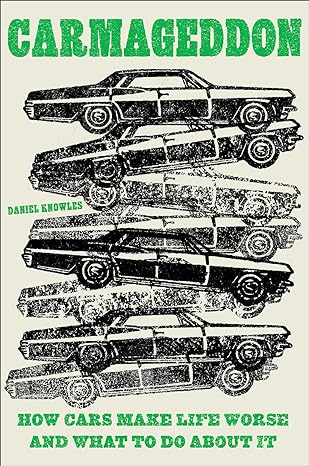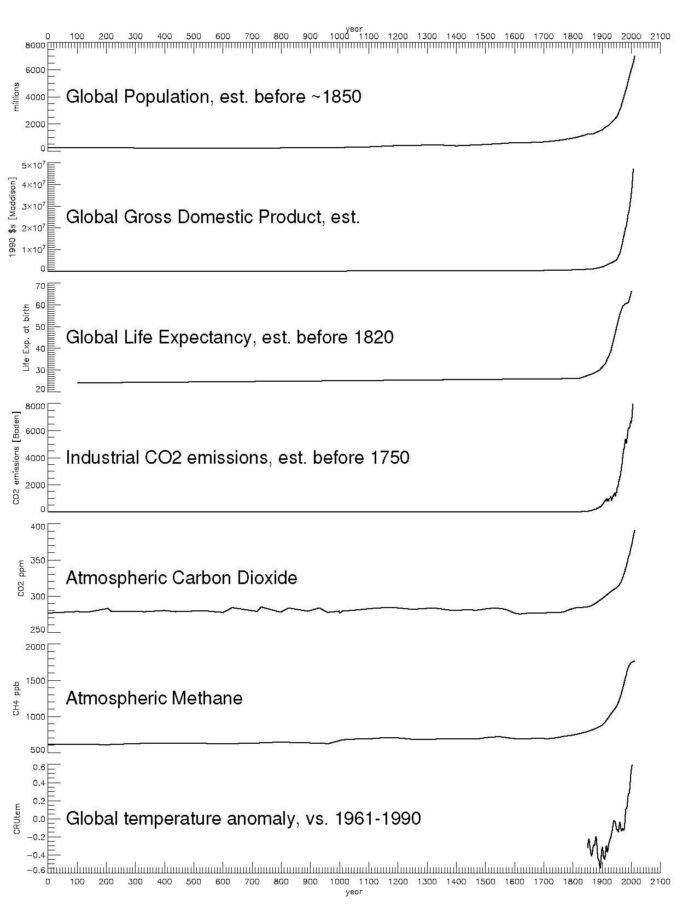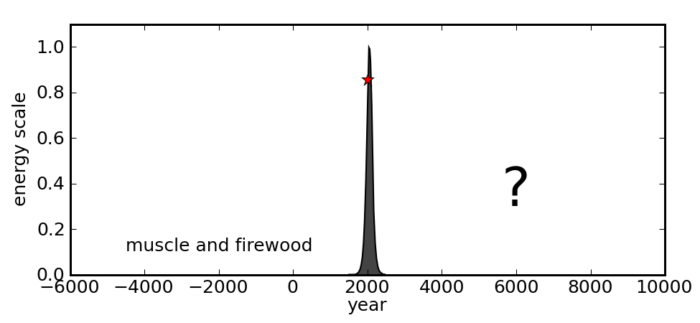This week’s selected media: February 25, 2024: Carmaggeddon, The Lover, Happy Fat, and Climate, Human Population and Human Survival: What the Deep Past Tells Us about the Future
I finished this week:

Carmaggeddon, by Daniel Knowles: I bought a cheap used car after getting my first license at 15 years old. The experience led me to never own a car again. I knew that choice would force many later life decisions The summer after high school, when I was 16, a friend and I rode our bikes from Philadelphia to Bar Harbor, Maine and back. A couple years later I started volunteering for bike advocacy.
I think I know a fair amount about cars and how designing cities, nations, and cultures prioritizing them (and planes) over other forms of transportation undermines community, health, resilience, and so on.
I could have sworn I’ve read this book before. It comprehensively covers what I’ve learned over decades, but it dawned on me as I read that this book didn’t exist before. I highly recommend it to know more about problems with cars and how much healthier, safer, more free, and more fun life and culture is in places that depend less on them.

The Lover, by Marguerite Duras: I was invited to a local book discussion group for this book. I’d been introduced to Duras when I lived in Paris in 1990, but never read her most renowned book. Though I finished it in time for the group meeting, I declined in favor of finishing my latest draft.
I valued reading a different view on colonialism than I was used to. I’m glad I read it. Duras shares a view on life different than I would have imagined. I can’t say much since it didn’t resonate with me.
Happy Fat, by Sofie Hagen: This book showed up in a search (the library app has a great search function that makes for fun browsing) for a different book. The title intrigued me. I’ve long known about fat activism. I read it to see about inviting the author to the podcast. I like bringing people with views and experiences difference than mine, especially if they are leaders in their communities.
I’m mixed on whether to try inviting her. She’s open about sharing vulnerabilities. She’s struggled through pain and resistance, both internal and external. She’s researched her field.
In the whole book, I don’t think she once said anything positive about men or white people. Nearly every time she mentioned either it was to show how oppressive, ignorant, self-righteous, or something similar they were. Men were only good for her using as sexual exploits.
About halfway through the book, she described something she did with someone trying to make her feel bad. Speaking figuratively, she said she took the gun they were pointing at her and pointed back at them. In this analogy, she didn’t reduce the amount of violence, she turned it around. I felt that pattern described the book. Something like: the world doesn’t understand us, treats us badly, and tries to make us feel shame and other emotions we don’t like. I will treat them badly and make them feel shame and other emotions they don’t like. Then we can lord over them the way they try to lord over us.
She wants to make fat a neutral adjective, which I’ve thought should be the case. She suggests that saying someone is fat should be like saying the have blond hair. One of her starting premises seems to be that fatness is a property we are born with or can’t change, like skin color, sexual preference, or national origin so what she calls fat-phobia is like racism or homophobia. She propagates the consequences of that view, concluding society treats fat people how it treats, say, blacks in Jim Crow, though she’s Danish, so not from an American first view.
She only mentioned food a few times, each time disparaging fresh fruit (she eats apples to punish herself since they are sour) and vegetables (she can’t seem to imagine someone enjoying kale, which she presents as if anyone would dislike it but society has conspired to call it “good” food in opposition to what she likes, “bad” food). Meanwhile, she enjoys doof and doesn’t distinguish it from food.
So her world view puts down white people, men, cis people, fruit, vegetables, exercise, and many integral parts of me and my life. I believe she would say she would treat me as an individual, but I lie in the overlap (she would say intersection) of all sources of oppression, ignorance, and such. I might still try to reach her. I found a few videos she posted online, including an hour-long stand-up show (she does stand up professionally) and I laughed out loud a few times, though cringed at her attacks on people for their skin color, sexual preference, diet, and such.
Climate, Human Population and Human Survival: What the Deep Past Tells Us about the Future, by John Brooke: John’s been on the podcast twice. I learned a lot from him. I recommend his book on deep history, Climate Change and the Course of Global History: A Rough Journey. This article covers the highlights, so if you want to dip your toes in before jumping in, check it out.
Normally I put whole books or movies here. I include the article because it led me to discover Ohio State’s Origins site, which it’s a part of. Wow, tons of wonderful writing. His article linked to many others that I enjoyed nearly as much: Global Food Crisis; Food Security and Gene Banks; Population Growth in India; World Water Crisis; Nuclear Power in Japan; U.S. Energy Policy; and Over-Fishing.
I recommend the whole site. If you like sustainability, I recommend John’s article and the ones I linked to above.
Here’s a plot from his article you can probably understand without explanation, suggesting we’re off the charts on many environmental measures. Even if we’re still in sustainable territory, the rate of change is beyond unprecedented. Come to think of it, I’ll include a graph podcast guest Tom Murphy made that he considers his most important just below, so scroll down.

Here’s Tom’s most important graph. It shows not just the energy humans could use for last several millennia, but the next. Read his book or blog for further discussion. He isn’t just guessing nor fear-mongering. He’s as informed and researched as anyone you’ll find (if you know others, let me know). Learning about this graph and his research will tell you a lot of what matters in the environment and sustainability.

Read my weekly newsletter

On initiative, leadership, the environment, and burpees